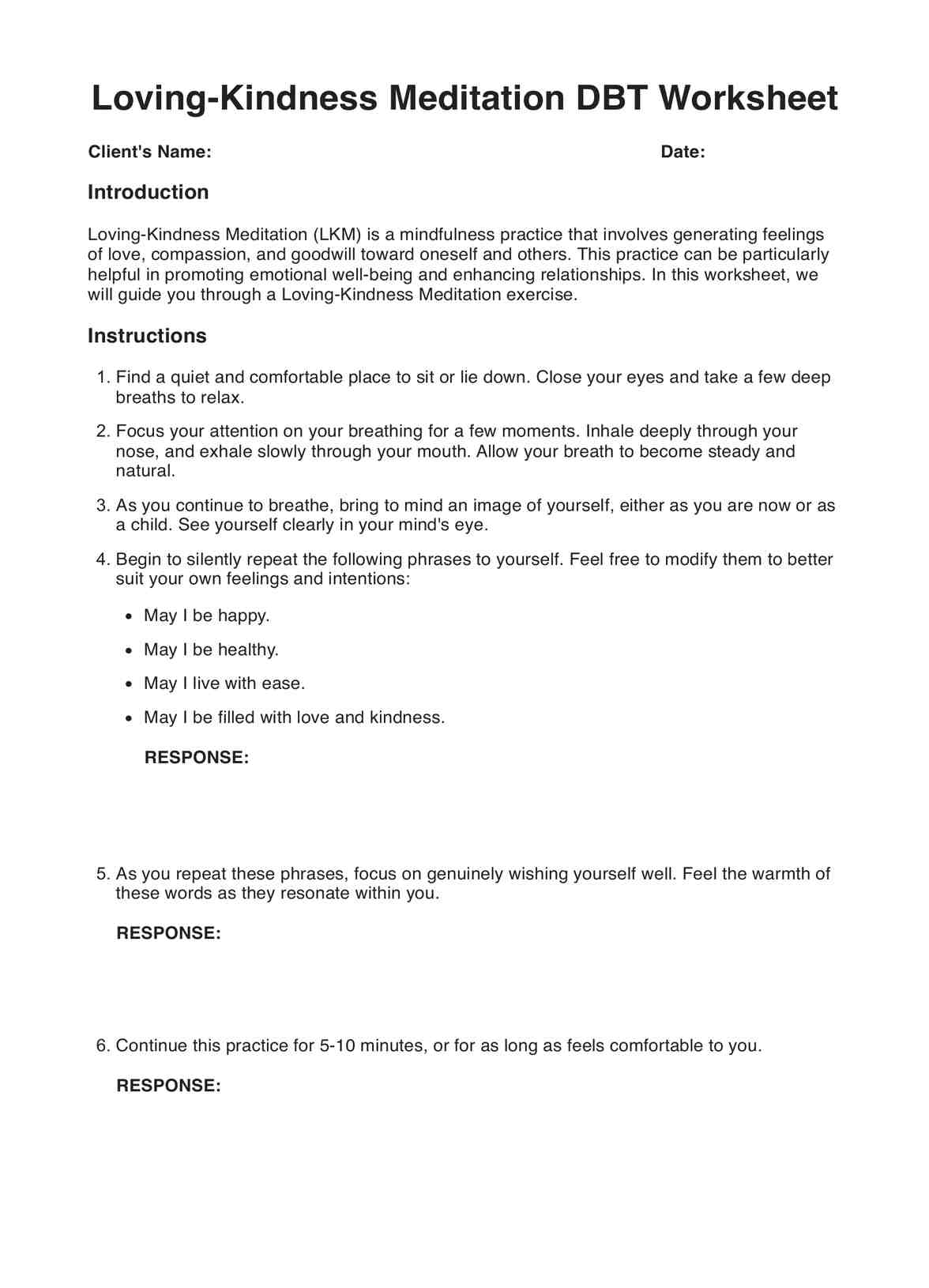This worksheet can benefit many individuals, including those seeking to improve emotional regulation, self-compassion, and interpersonal relationships. It is often used in therapy, self-improvement, stress management, and more.

Loving Kindness Meditation DBT Worksheet
Improve emotional well-being with our Loving-Kindness Meditation DBT Worksheet in healthcare. Cultivate self-compassion and improve relationships.
Use Template
Loving Kindness Meditation DBT Worksheet Template
Commonly asked questions
Closing your eyes can help create a more focused and reflective atmosphere, but it's unnecessary. You can practice with your eyes gently lowered or find a comfortable and safe way that works best for you.
Absolutely! The phrases provided in the worksheet are a starting point. Feel free to modify them to suit your feelings and intentions better. The key is to wish yourself and others well genuinely.
EHR and practice management software
Get started for free
*No credit card required
Free
$0/usd
Unlimited clients
Telehealth
1GB of storage
Client portal text
Automated billing and online payments











